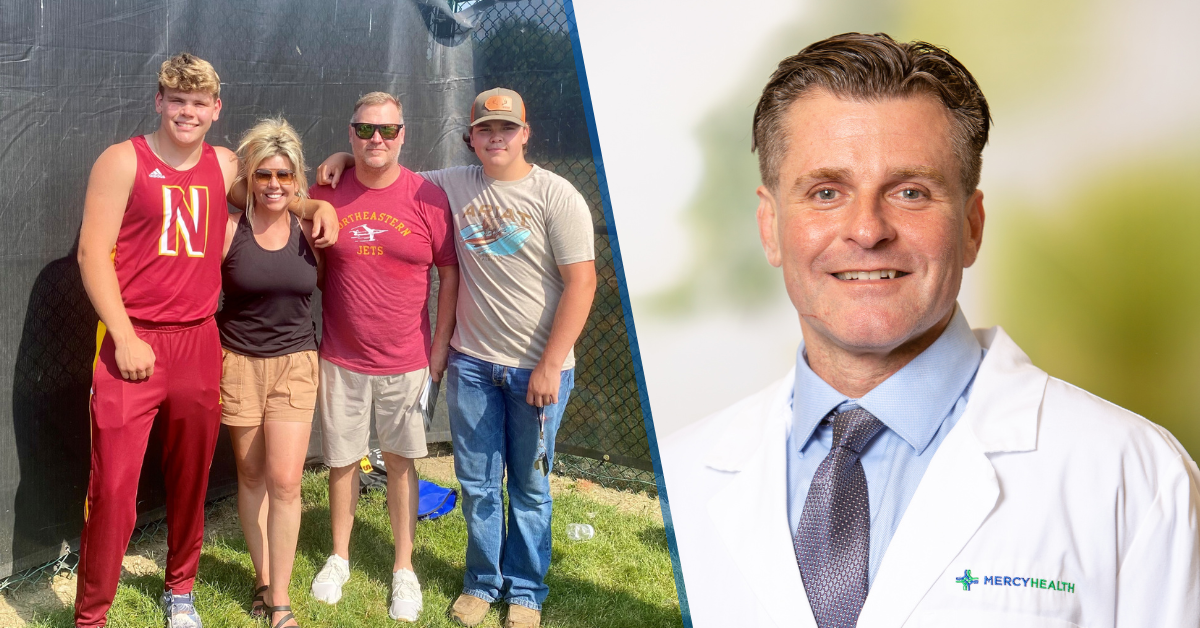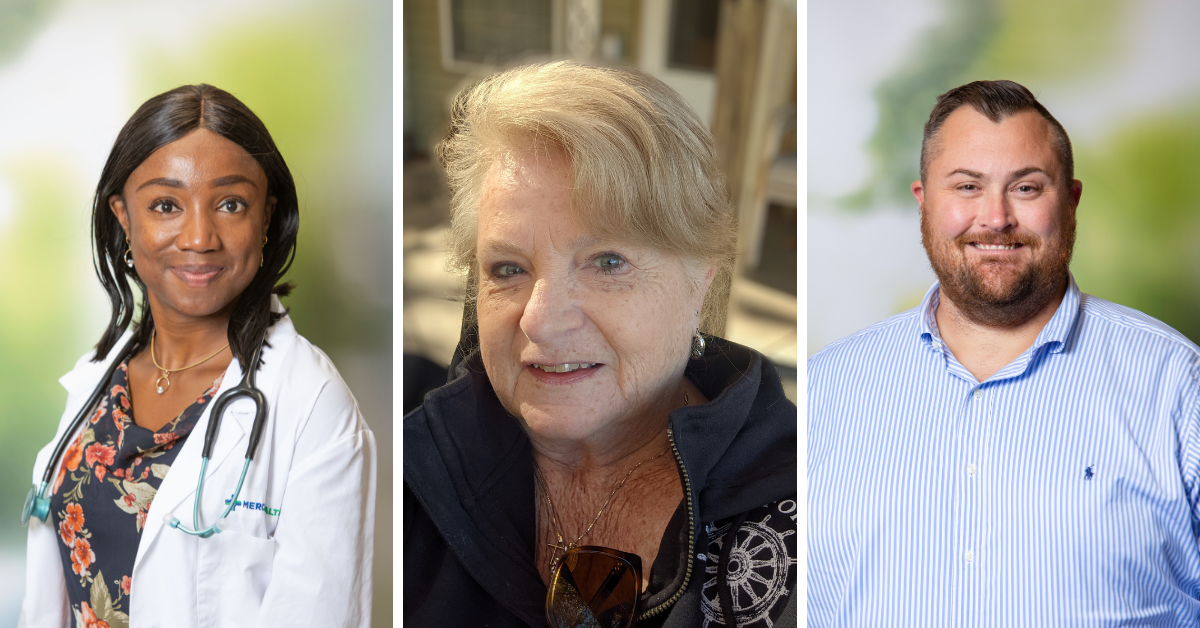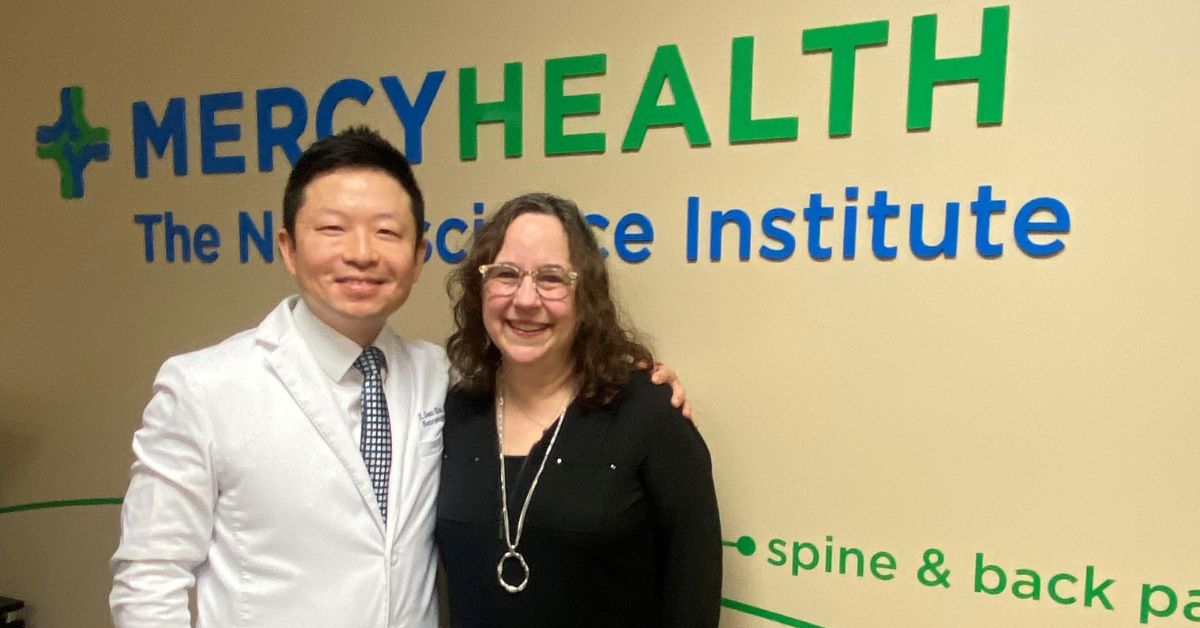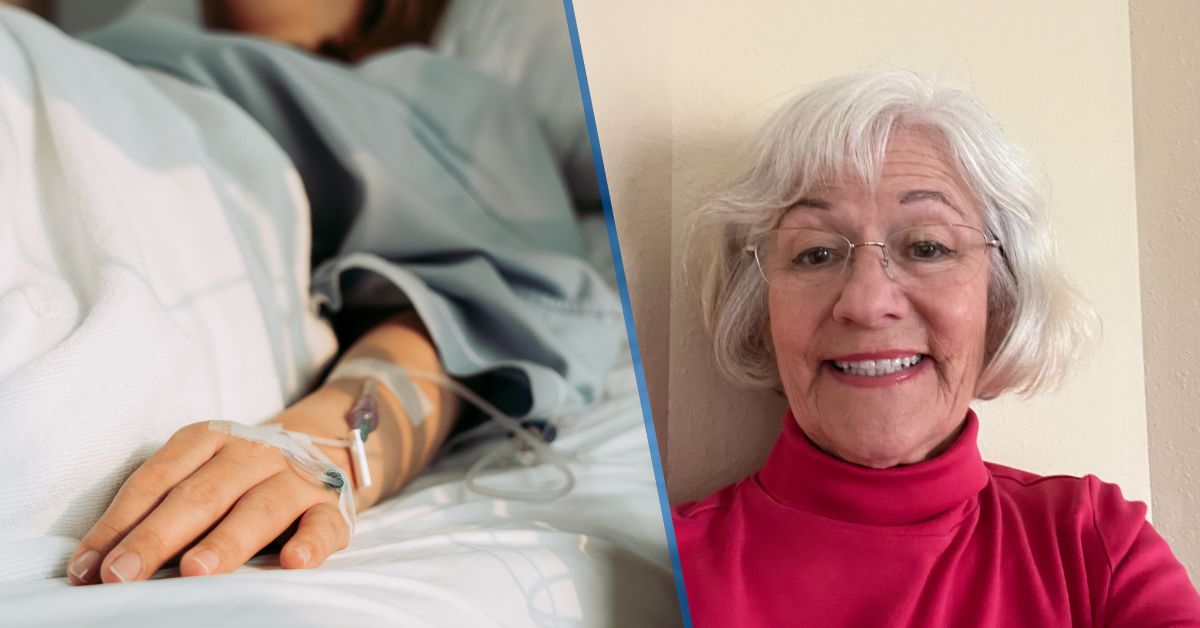Unlike Type 1 diabetes, Type 2 diabetes in some cases is reversible. With diligent lifestyle changes, such as a healthy diet and exercise, people can get their blood sugar down to a healthy level.

Kristin Baldeschwiler, an academic coordinator at Mercy Health – St. Vincent Medical Center, was diagnosed with Type 2 Diabetes in the summer of 2013. After her diagnosis, she started participating in Mercy Health’s diabetes education program, which is designed to help patients learn more about the disease and how it affects their bodies. The program also serves as a support system and encourages patients to implement a healthier lifestyle.
“Lifestyle changes are the hardest to make,” says Kristin. “And I knew exercise was an important part of the solution.”
Inspired by the program, Kristin started walking her neighbor’s Corgis, Jake and Beau, about three or four times a week.
“It was a reciprocal relationship because the dogs needed a healthy routine too,” Kristin says. “I love those dogs, and it became a fun motivator to get up and move.
Kristin first noticed the results of this lifestyle change while on vacation in New York City with her husband. During the trip, she found she had plenty of stamina to walk all over the city.
During the first year of her new lifestyle, Kristin’s A1c levels dropped over three points. Hemoglobin A1c levels are closely monitored for people with diabetes. The test measures someone’s average blood sugar levels over the last two to three months.
Jeannie Wagner, clinical coordinator of Mercy Health – Toledo, notes the diabetes education program is about supporting people, giving them critical information and empowering them to make healthy life changes.
“People will take action when they determine a situation is a problem that needs their attention,” says Jeanie. “As health care providers, we want our patients to get those blood sugar levels down, so they can maximize their energy and lifespan. However, as educators, we recognize that we cannot tell people what to do – but we can teach them and support them during the process.”
For Kristin, learning basic information about A1c levels solidified her decision to make healthier choices. She knew that she could not put off these choices any longer.
“You can tackle it and you should take ownership,” Kristin encourages. “Take advantage of the resources that are available around you.”
Learn more about the diabetes management services available at Mercy Health.






